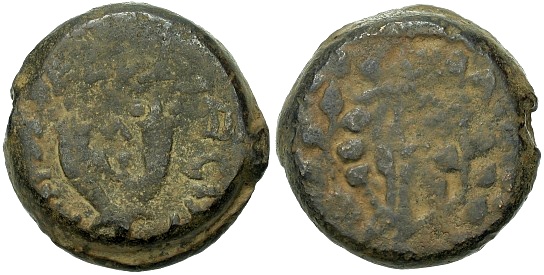
 |
Freethought & Rationalism ArchiveThe archives are read only. |
|
|
#21 | |
|
Veteran Member
Join Date: Mar 2009
Location: England
Posts: 2,527
|
Quote:
Both sources have to have their 'history' checked out. Josephus is as able to write pseudo-history, prophetic interpretations of history etc, as any gospel writer. Without independent outside corroboration, Josephus, and the gospels, cannot be used for any historical reconstructions. Yes, scholarship is too trusting of Josephus - just as the JC historicists are too trusting of the gospel story. |
|
|
|
|
|
#22 |
|
Veteran Member
Join Date: Jun 2010
Location: seattle, wa
Posts: 9,337
|
So I wonder whether the term 'tetrarchy' was loosely used to describe a region that was a portion of a kingdom that once stood as a whole but was divided by the Romans. So in the case of Archelaus 'the kingdom of Commagene' was a massive kingdom ruled by Antiochus who was defeated by the Romans in 38 BCE http://en.wikipedia.org/wiki/Antioch...s_of_Commagene. After their victory the Romans divided his kingdom into smaller regions and appointed petty rulers who were often referred to as 'tetrarchs' and their kingdoms 'tetrarchies' based - one would assume - on the experience of Julius Caesar in Galatia.
One would tend to see the same thing at work in Judea. The Hasmonaeans had at one time ruled the entire region. This must have been 'the kingdom of Judea.' When Antony appointed the sons of Antipater to divide the kingdom they were identified as 'tetrarchs' and their kingdoms 'tetrarchies' too. In this one instance Josephus is accurate but the identification of Herod as a 'tetrarch' and his kingdom a 'tetrarchy' continued (= the Jew of Celsus, John Malalas's source). The question again is can a tetrarchy have a king? Must a tetrarchy be ruled by tetrarch? Was it just a name that was applied to a region that was a portion of an originally much larger 'kingdom'? |
|
|
|
|
#23 | ||
|
Contributor
Join Date: Feb 2006
Location: the fringe of the caribbean
Posts: 18,988
|
Quote:
|
||
|
|
|
|
#24 | |||||
|
Veteran Member
Join Date: Mar 2009
Location: England
Posts: 2,527
|
Quote:
 SH55100. Bronze AE 23, Meshorer TJC 36d, Hendin 1162, F, Jerusalem mint, weight 12.936g, maximum diameter 22.4mm, die axis 180o, obverse Hebrew inscription, Mattatayah the High Priest and Council of the Jews, around and between the horns of a double cornucopia; reverse ΒΑCΙΛΕΩC ΑΝΤΙΓΟΝΟΥ (of King Antigonus), ivy wreath tied with ribbons; scarce; $135.00 http://www.forumancientcoins.com/cat...ns.com/Coins2/  Antigonus II Mattathias Antigonus II MattathiasQuote:
Josephus: Life Quote:
A man survives a crucifixion - taken down from the cross - later, of course, to die. Antigonus most likely hung on a cross and scourged - and taken down and beheaded. A Josephan story set after the 70 c.e. siege of Jerusalem - reflecting a history of Antigonus after the siege of Jerusalem by Herod the Great in 37 b.c. |
|||||
|
|
|
|
#25 |
|
Regular Member
Join Date: Apr 2010
Location: Tasmania
Posts: 383
|
I read somewhere that the Herods were from Arabian stock. Does that sound likely?
|
|
|
|
|
#27 | ||
|
Regular Member
Join Date: Apr 2010
Location: Tasmania
Posts: 383
|
Quote:
|
||
|
|
|
|
#28 | |||
|
Contributor
Join Date: Feb 2006
Location: the fringe of the caribbean
Posts: 18,988
|
Quote:
By the way Josephus does NOT corroborate the crucifixion of Antigonus as claimed by Cassius Dio. |
|||
|
|
| Thread Tools | Search this Thread |
|